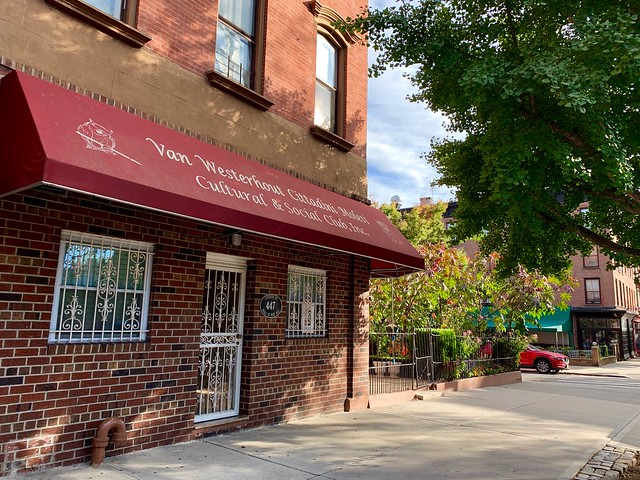One example is the lovely yard next to the Van Westerhout Cittadini Molesi Cultural and Social Club on Court Street at the corner of Fourth Place. For as long as we can remember, the garden has been beautifully planted every spring and summer. Surrounding a Madonna protected under a white cupola and a flag pole with an Italian flag and an American flag, a profusion of marigold, begonias, dalias, and cleome bloom throughout the season
The plant's biological name is Ricinus Communis and is native to the Mediterranean Basin, Eastern Africa and India.
For centuries, castor oil from the plant's seed has been used as a natural laxative, a contraceptive, a lubricant, to induce labor and many other medicinal uses.
But the seeds also contain ricin, a deadly water-soluble protein called a lectin " which, if ingested, causes clumping and breakdown of red blood cells, hemorrhaging in the digestive tract, and damage to the liver and kidneys.According to Encyclopedia.com: " Gram for gram, ricin is 6,000 times more deadly than cyanide and 12,000 times more deadly than rattlesnake venom."
For centuries, castor oil from the plant's seed has been used as a natural laxative, a contraceptive, a lubricant, to induce labor and many other medicinal uses.
But the seeds also contain ricin, a deadly water-soluble protein called a lectin " which, if ingested, causes clumping and breakdown of red blood cells, hemorrhaging in the digestive tract, and damage to the liver and kidneys.According to Encyclopedia.com: " Gram for gram, ricin is 6,000 times more deadly than cyanide and 12,000 times more deadly than rattlesnake venom."
Therefore Ricinus communis is classified as the most poisonous plant on earth for humans
Their seeds may be deadly, but the plants sure are pretty.
Since then, it has become one of the only few remaining Italian clubs in Carroll Gardens.
It is nice to see that its members still congregate there and that they still plant flowers in the garden each year.














.JPG)

1 comment:
Yes, it’s nice to see this still exists. Glad you appreciate it.
Post a Comment